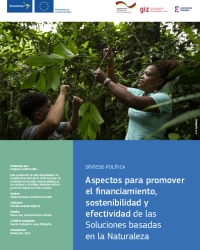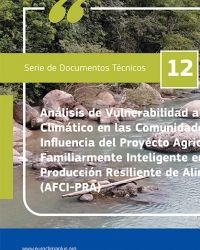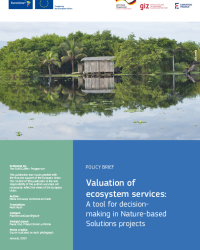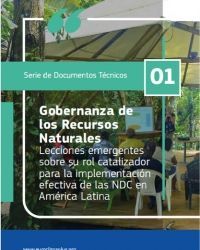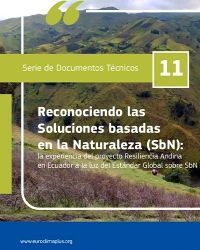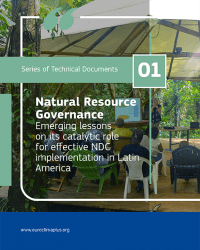Búsqueda por categoría
Más descargados
| Guía Cambio Climático y agricultura familiar con lentes de género 10866 Descargas | 2.49 MB | |
| Informe anual 2021-2022 6698 Descargas | 4.62 MB | |
| Transversalizando la perspectiva de género en proyectos de acción climática: caja de herramientas 3604 Descargas | 6.6 MB |
A importância das políticas públicas na gestão de riscos do pequeno agricultor
1518 Descargas
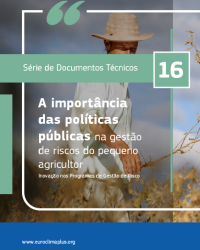 Este documento analisa os principais instrumentos de gestão de riscos do Brasil: o Programa de Garantia da Atividade Agropecuária (Proagro) e o Programa de Subvenção ao Prêmio de Seguro Rural (PSR). O objetivo é demonstrar a estrutura dos dois programas e descrever suas principais diferenças, pontos fortes e fracos. O estudo é baseado em entrevistas com especialistas do mercado, instituições financeiras, governo e representantes de produtores rurais. Dados secundários sobre os programas também são utilizados. Os resultados são expressos em quatro pilares complementares, com propostas de medidas para sua implementação.
Este documento analisa os principais instrumentos de gestão de riscos do Brasil: o Programa de Garantia da Atividade Agropecuária (Proagro) e o Programa de Subvenção ao Prêmio de Seguro Rural (PSR). O objetivo é demonstrar a estrutura dos dois programas e descrever suas principais diferenças, pontos fortes e fracos. O estudo é baseado em entrevistas com especialistas do mercado, instituições financeiras, governo e representantes de produtores rurais. Dados secundários sobre os programas também são utilizados. Os resultados são expressos em quatro pilares complementares, com propostas de medidas para sua implementação.
| Categoría: | Serie Documentos técnicos |
| Tamaño del archivo: | 5.12 MB |
| Hits: | 12960 Hits |
| Descargas: | 1518 veces |
| Título: | A importância das políticas públicas na gestão de riscos do pequeno agricultor |
| Autor: | Prof. Dr. Gilson Martins, Fernanda Schwantes, Daniel Lima Miquelluti |
| Año: | 2022 |
| Autor institucional: | EUROCLIMA+, GIZ |
| Formato: | PDF: 74 p. |

